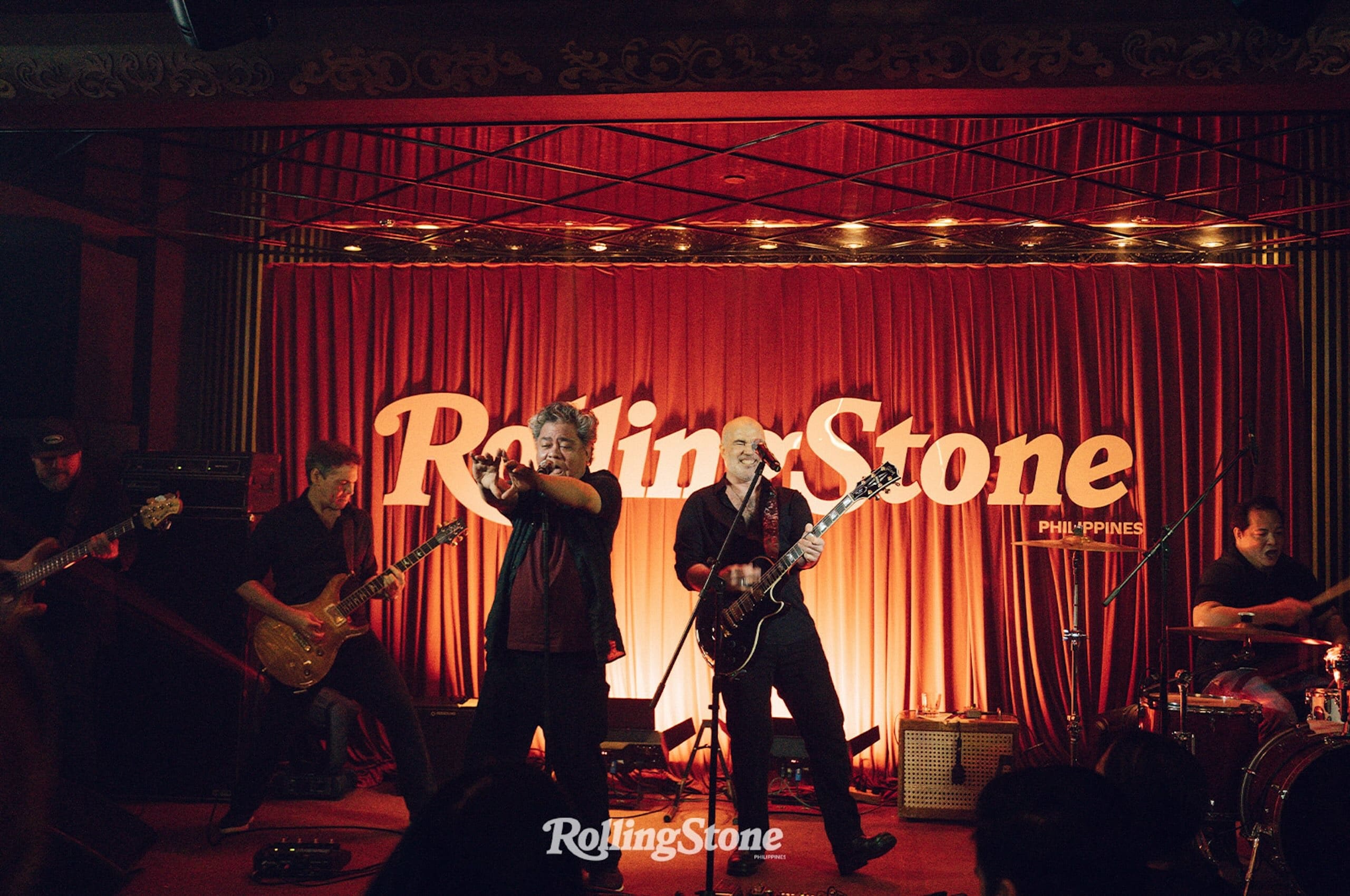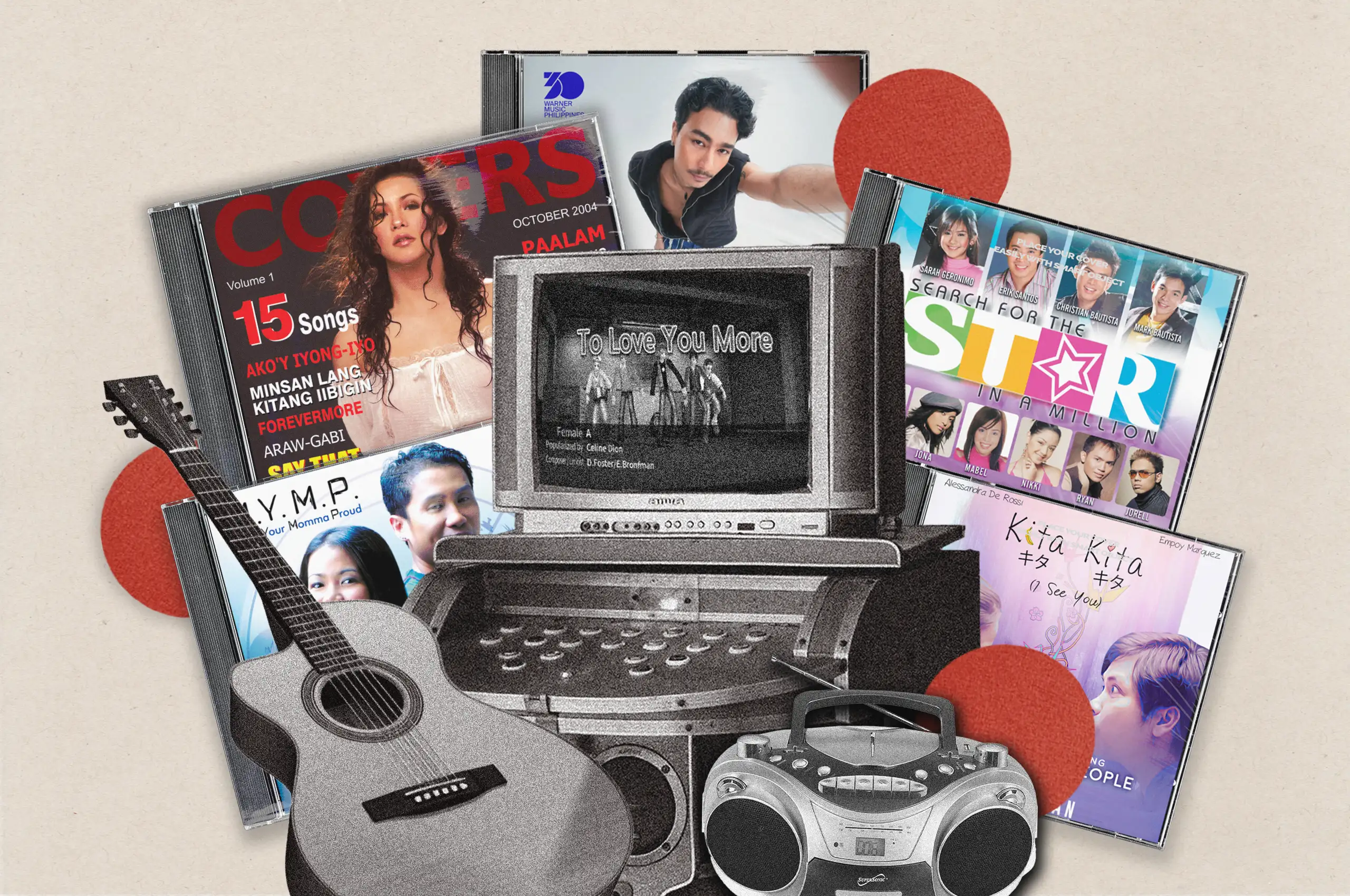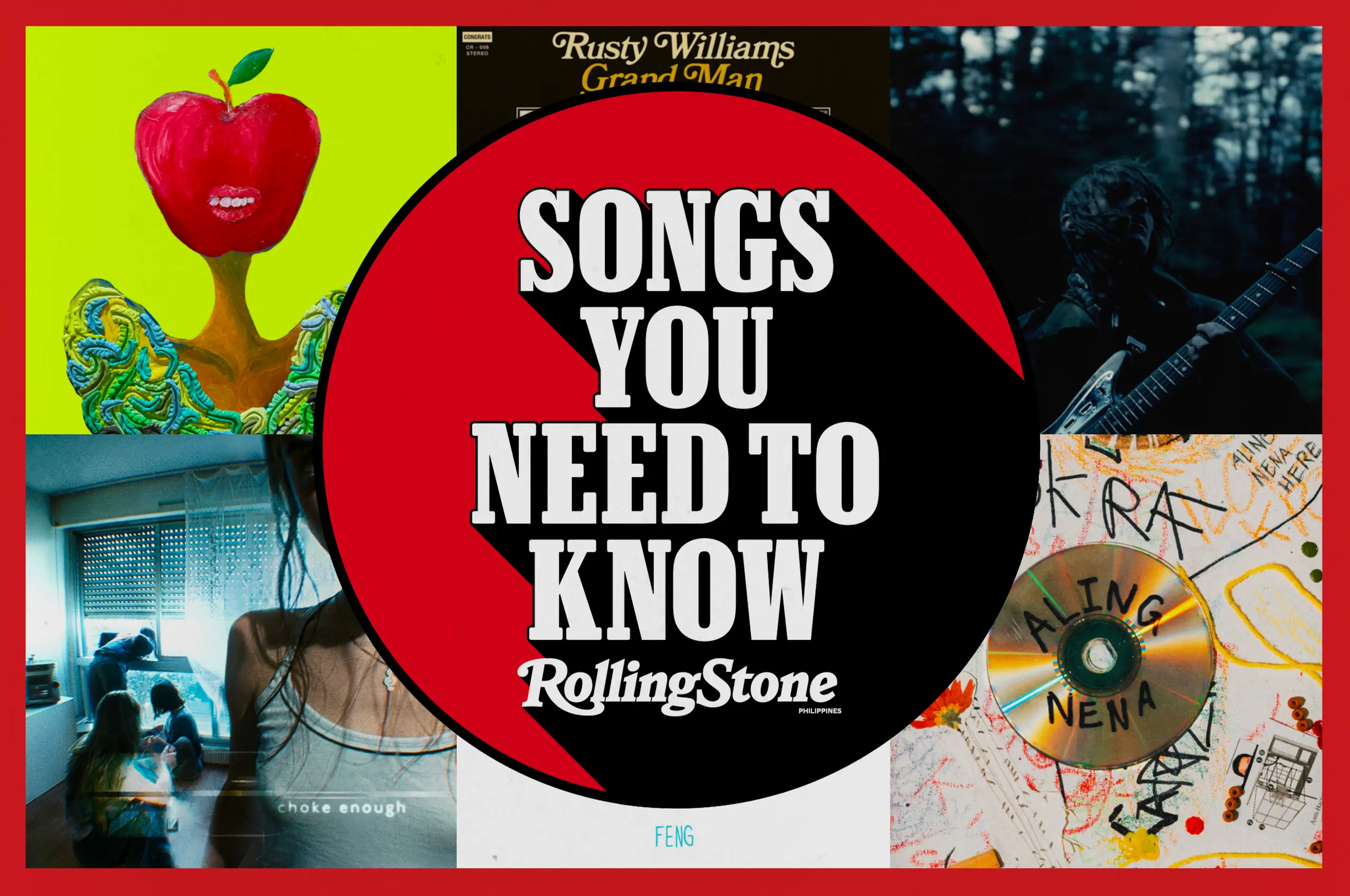Filipino hard rock legends Razorback brought the heat at the much-anticipated launch of Rolling Stone Philippines.
As the lights dimmed inside the opulent Salon de Ning at The Peninsula Manila, Razorback exploded onto the stage and instantly electrified the intimate venue. Tirso Ripoll and Manuel Legarda took charge of the guitars, slicing through the air with the iconic guitar riff of their classic hit “Giyaang.” Francis Aquino gradually brought the drums to life, bringing in a slow, deliberate pulse that crescendoed to welcome lead vocalist Kevin Roy into the mix as he grabbed the microphone. Roy’s voice, gravelly and raw, immediately had the room in awe. By the time the chorus hit, the crowd was completely hooked, their energy surging in perfect sync as the Wild Boars of Pinoy Rock.
For the last 34 years, Razorback has been a permanent fixture in the Filipino rock scene. The band delivers songs that are both anthemic and introspective, led by gritty guitar hooks, powerful drumming, and throaty, primal vocals. The band has opened for hard rock legends like Metallica, Silverchair, and Rage Against The Machine. They’ve brought their distinct, high-energy sound around the world, and even after more than three decades into the game, they show no signs of slowing down.
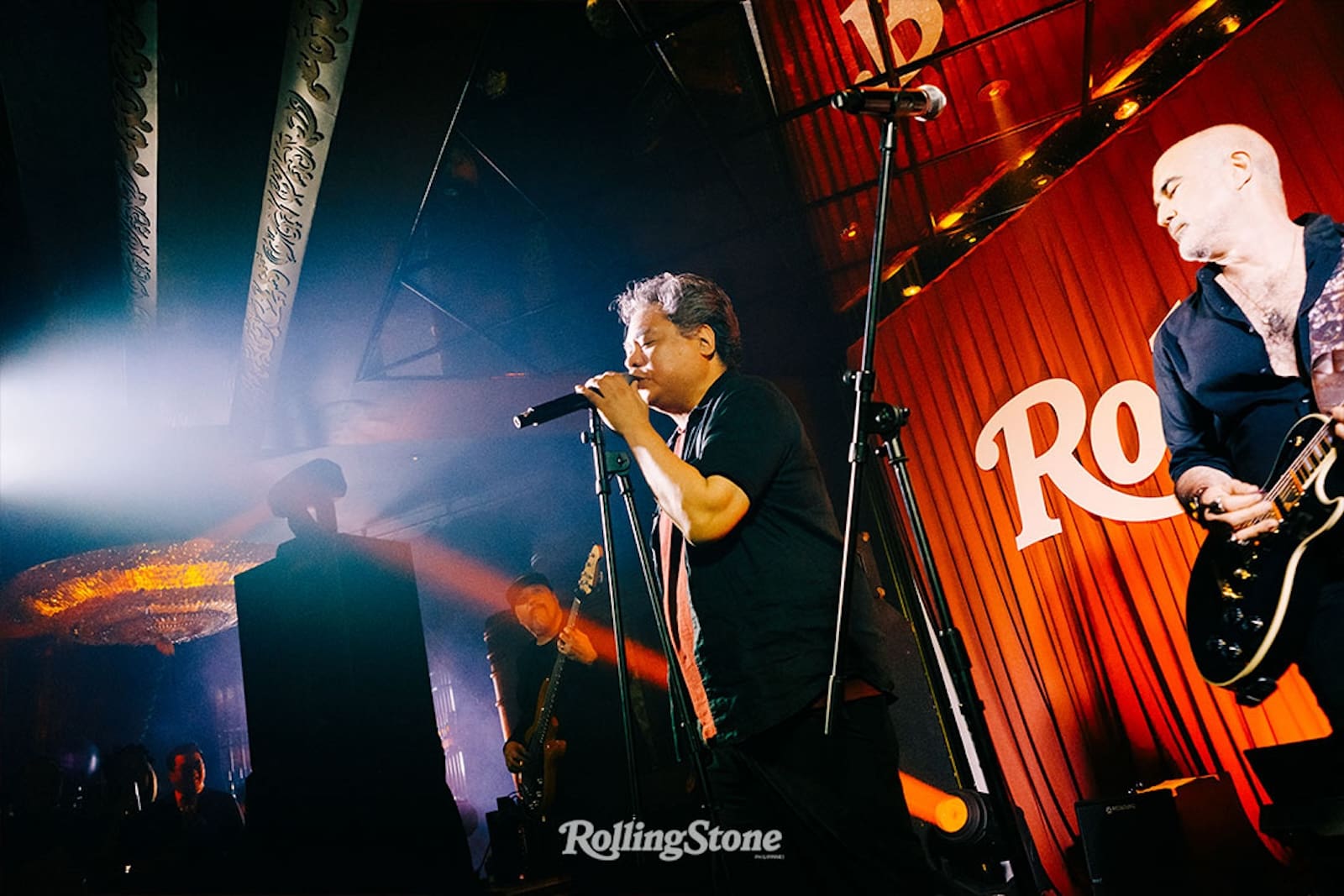
“We’re always playing!” Ripoll laughs when asked about how Razorback has maintained itself for so long. “We can’t stop playing because… It’ll just be miserable [if we don’t], and [we’d] make everyone else miserable. So, we have to play.” Ripoll has been with the band since the start, having founded it with former drummer Miguel Ortigas. The two bonded as teenagers over their love of Iron Maiden and Black Sabbath. Long excited conversations about their heavy metal idols turned into ambitious gigs at cheap bars like Kalye, a local venue where some of the country’s best rockstars — Wolfgang and Advent Call included — first earned their stripes.
Since its founding in 1990, Razorback has experienced frequent changes to its member line-up. But through it all, the band’s heavy metal spirit remained unwavering. The group’s sound has continually evolved, reflecting the dynamic nature of each new member. “Well, you’ve gotta evolve, right?” Ripoll says. “We’ve always been a very collaborative outfit. The contributions that somebody’s going to make are always going to be a little different. They’ll take it somewhere else and we’ll be like, ‘Hey, that’s cool.’” Their constant reinvention has allowed Razorback to stay relevant across decades, building a legacy that resonates with both longtime fans and new generations of rock fans.
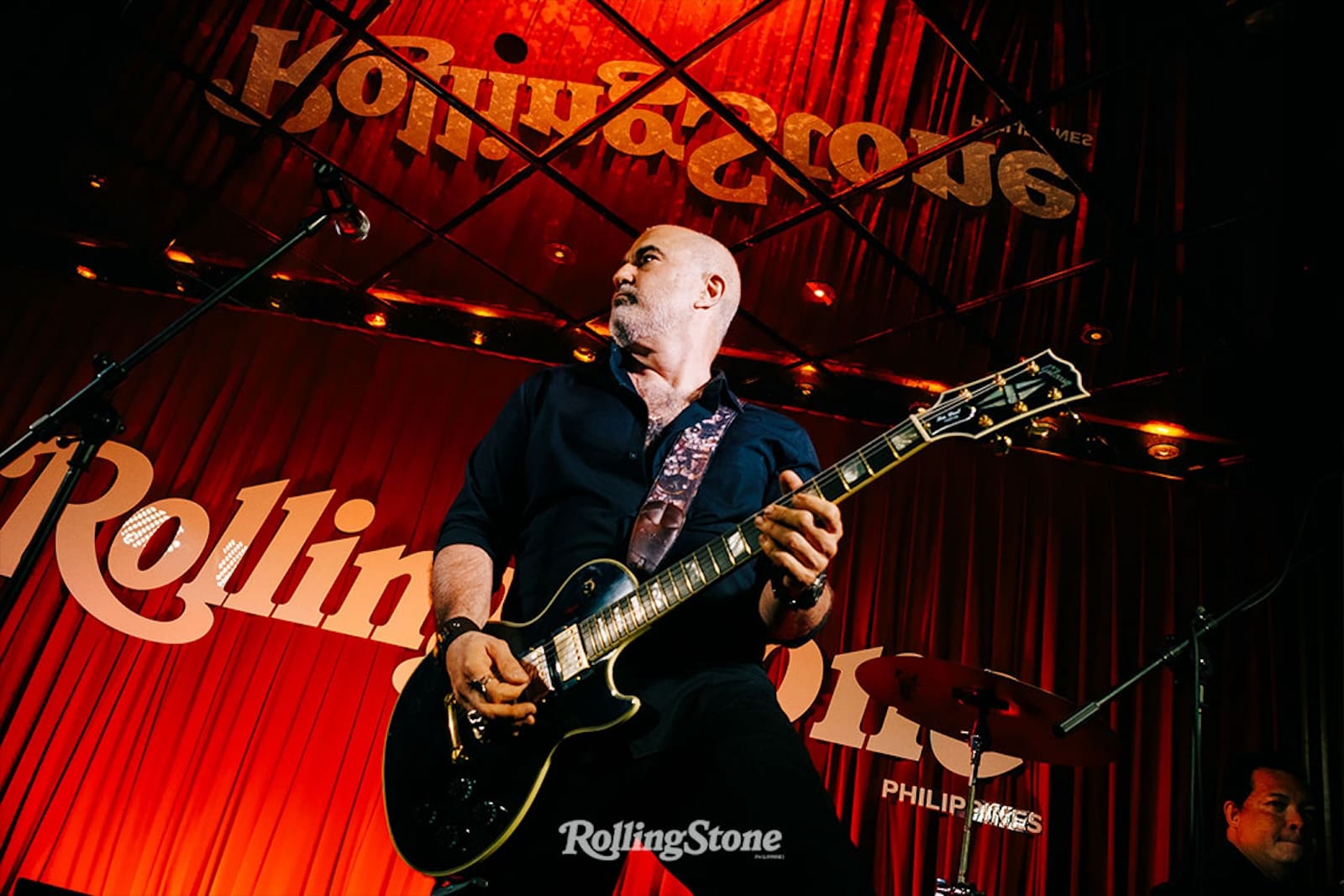
This longevity definitely shined through at the Rolling Stone Philippines launch party, where the band played songs spanning their 30-year career. “We have at least one or two songs from each of our eras,” says Ripoll on the setlist. He was right — the set included huge fan favorites like “Daan Daang Dahilan,” “Voodoo Who Do,” “Munting Paraiso,” “Payaso,” and “Wakasan.”
For Razorback, performing at the Rolling Stone Philippines launch was a moment of full-circle significance. “We grew up reading [Rolling Stone],” says Ripoll. “I even have the Rolling Stone Encyclopedia of Rock and Roll!” For Ripoll, the launch wasn’t just another gig — it was a milestone for the entire Pinoy rock community. He views the coming of Rolling Stone as a long-overdue recognition of the talent and energy thriving throughout the entire country. “I think it would be really good for all the local fans,” he says, “You don’t read about all those really young guys, those guys who play down in the South (e.g. Cebu’s Urbandub)… For some reason, you just never hear about them.”
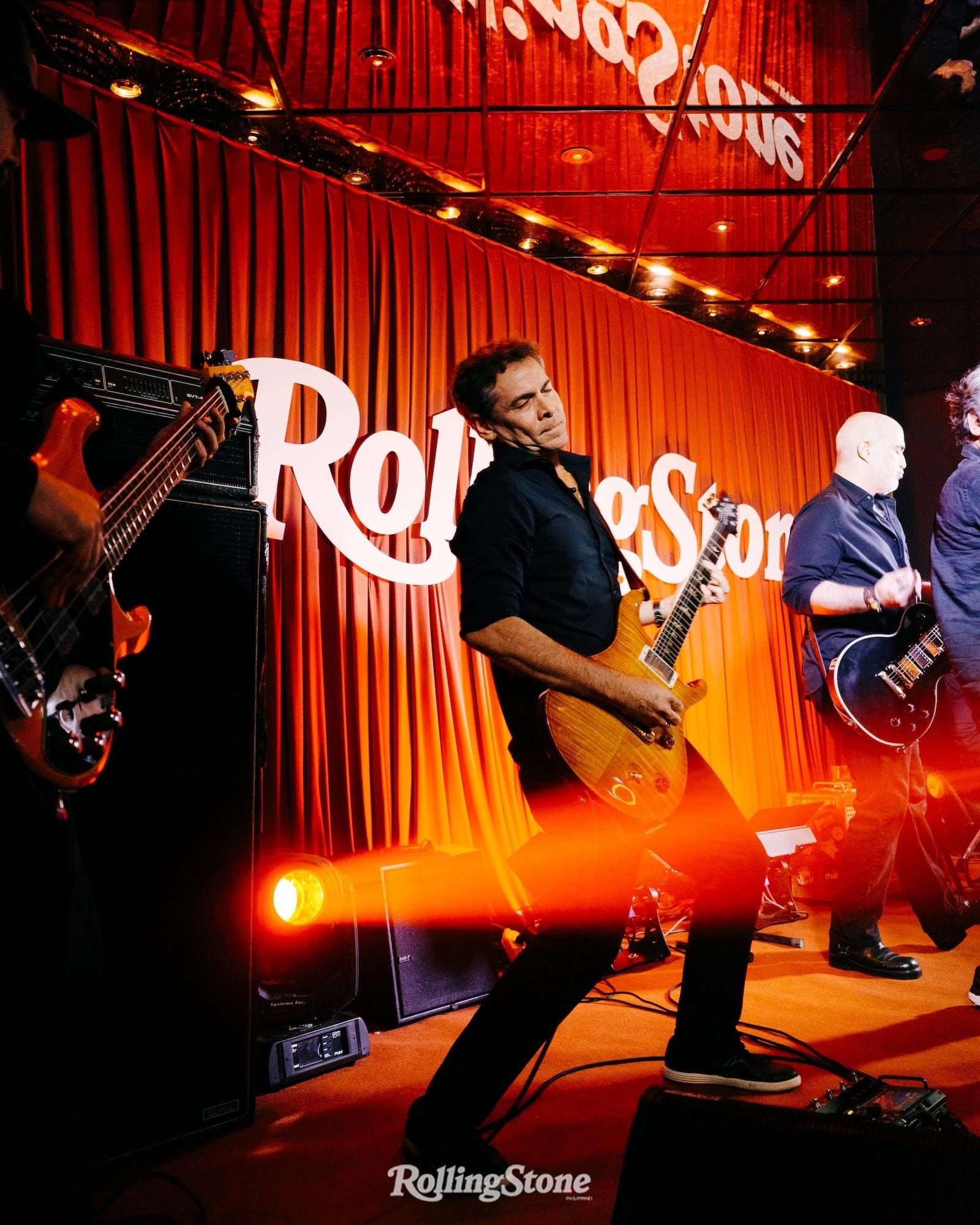
With the party signifying its official start, Rolling Stone Philippines is poised to make a significant impact on the country’s music scene, bringing the credibility and global influence the iconic brand is known for. The publication is set to cover music, as well as social issues and culture with the goal of reframing the conversation through a critical, discerning, and engaging voice.
“Rolling Stone Philippines is not just here to honor what came before,” says Jonty Cruz, Rolling Stone Philippines’ chief of editorial content. “It’s here to create new narratives.” With this vision, the magazine is set to bring back “attitude” to journalism: To tell the stories of emerging artists, explore new musical and cultural landscapes, and champion narratives that have yet to reach the mainstream spotlight.


